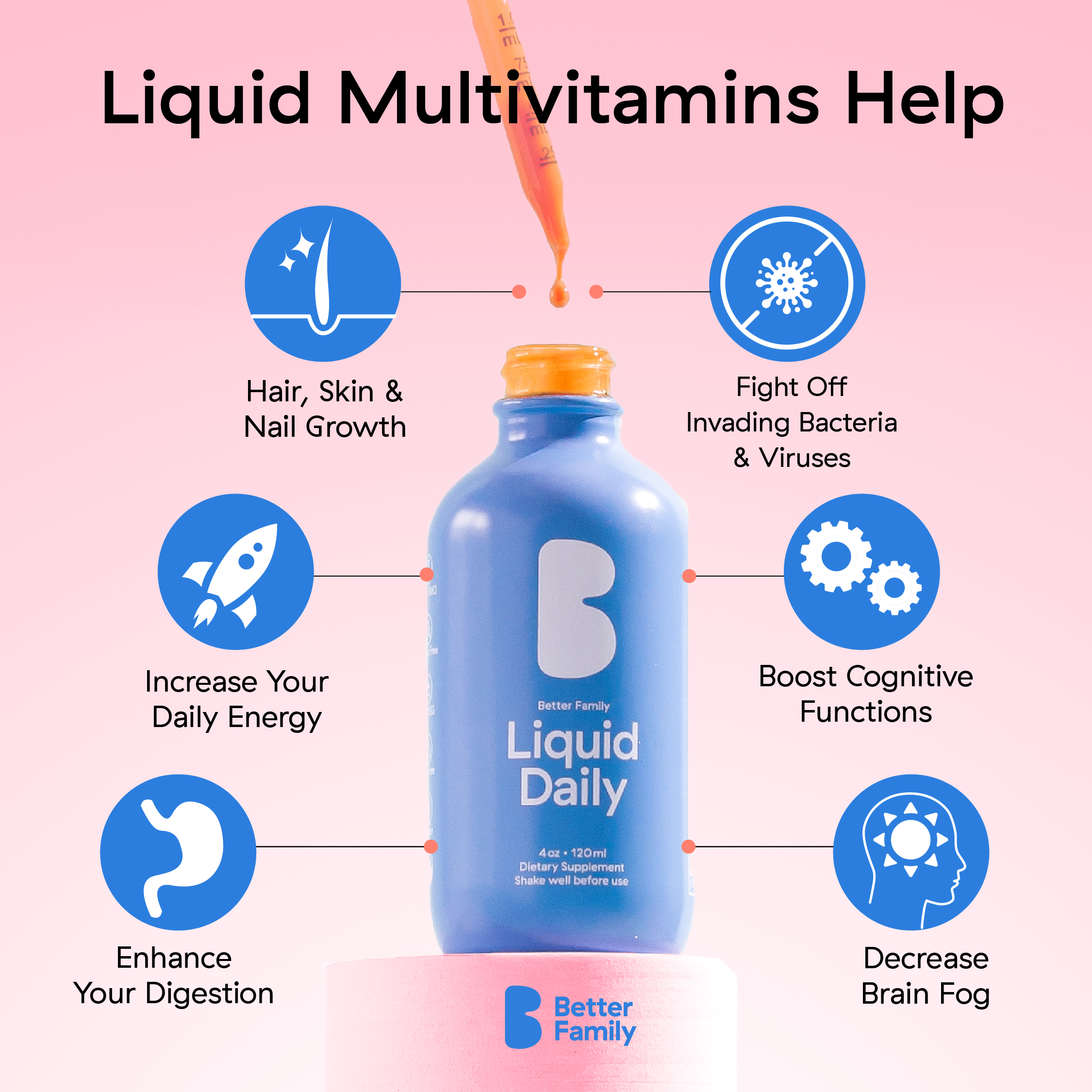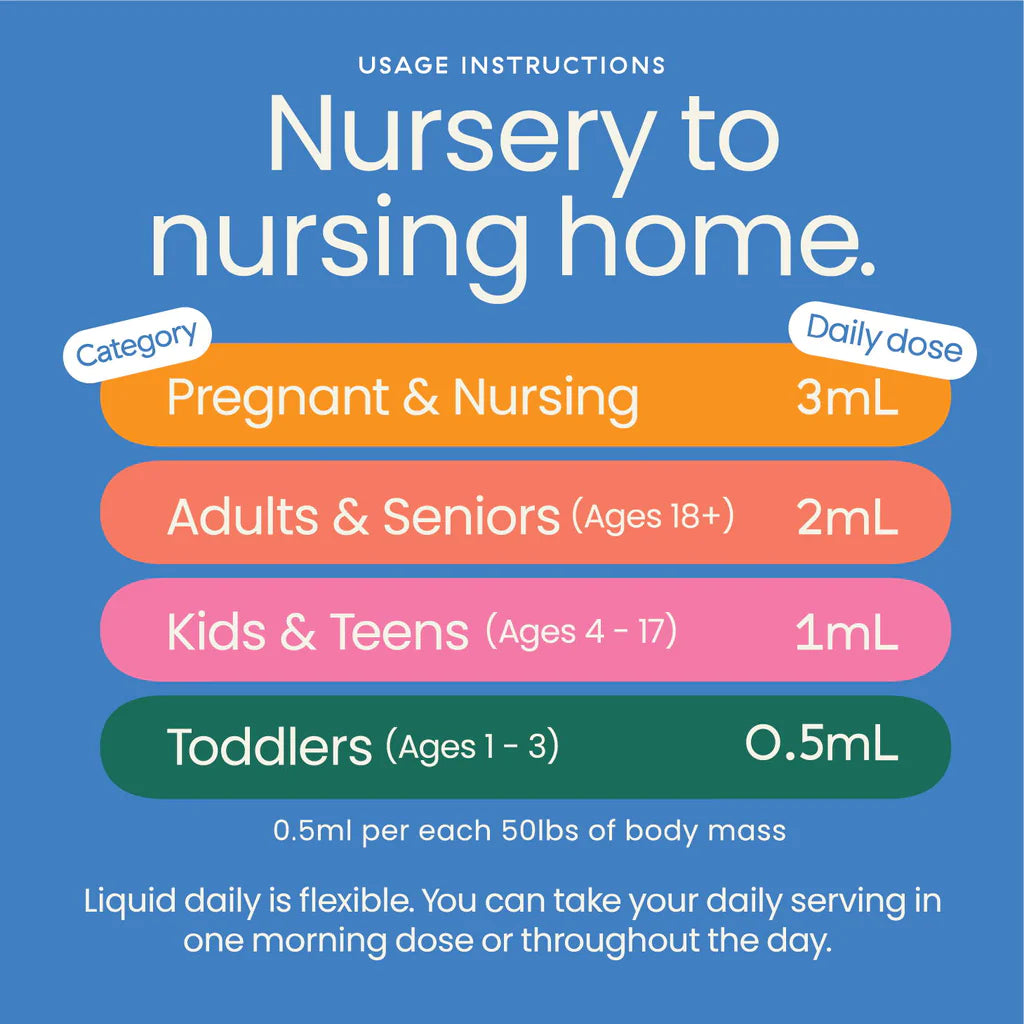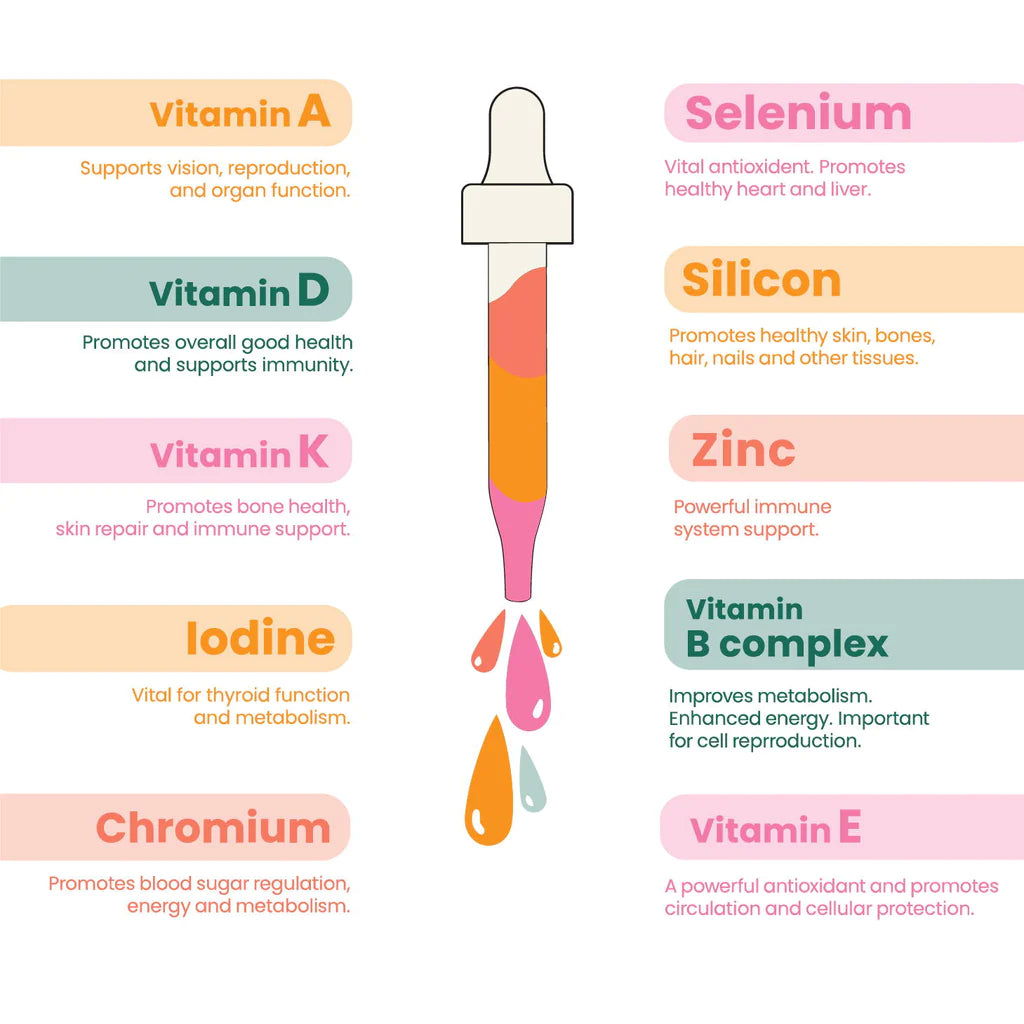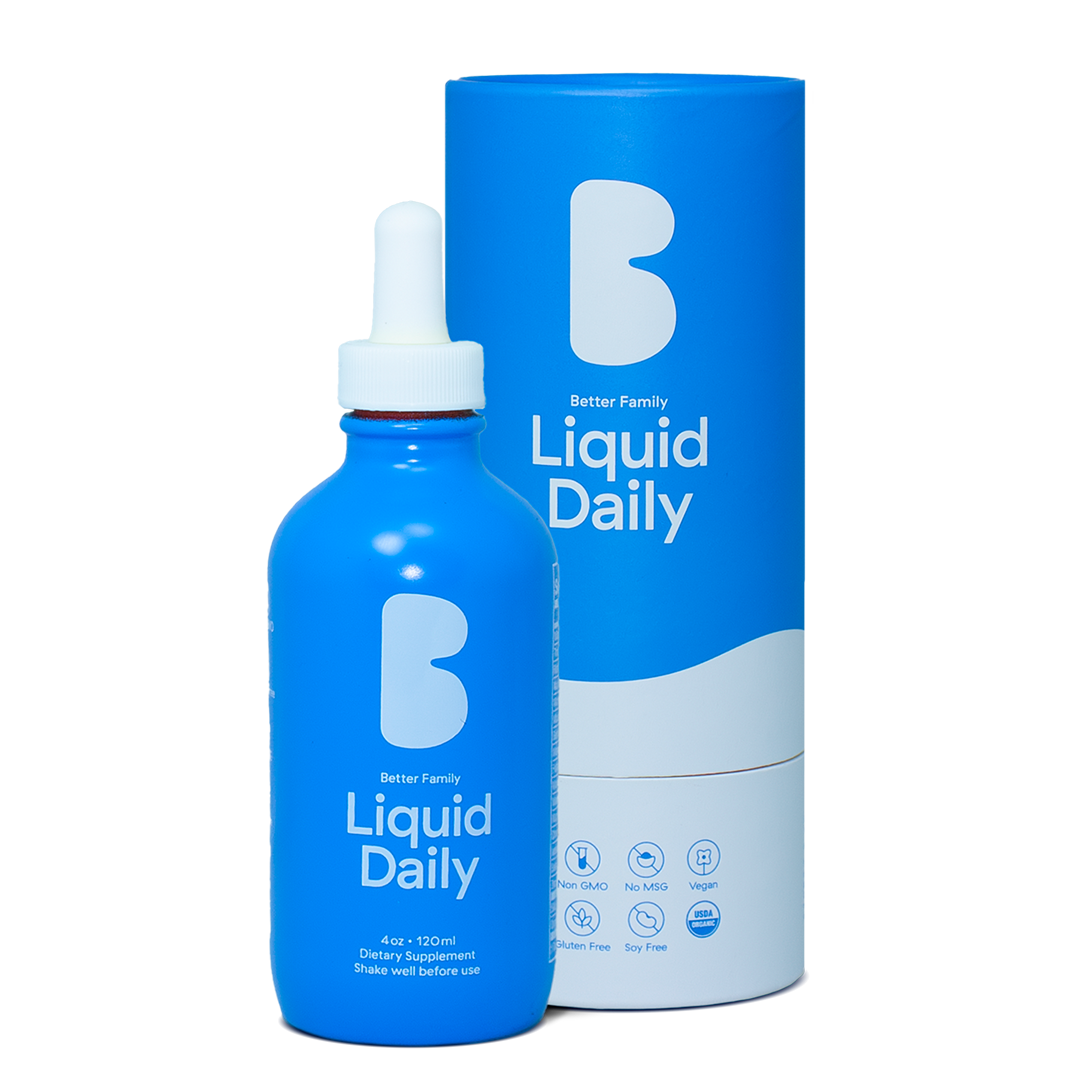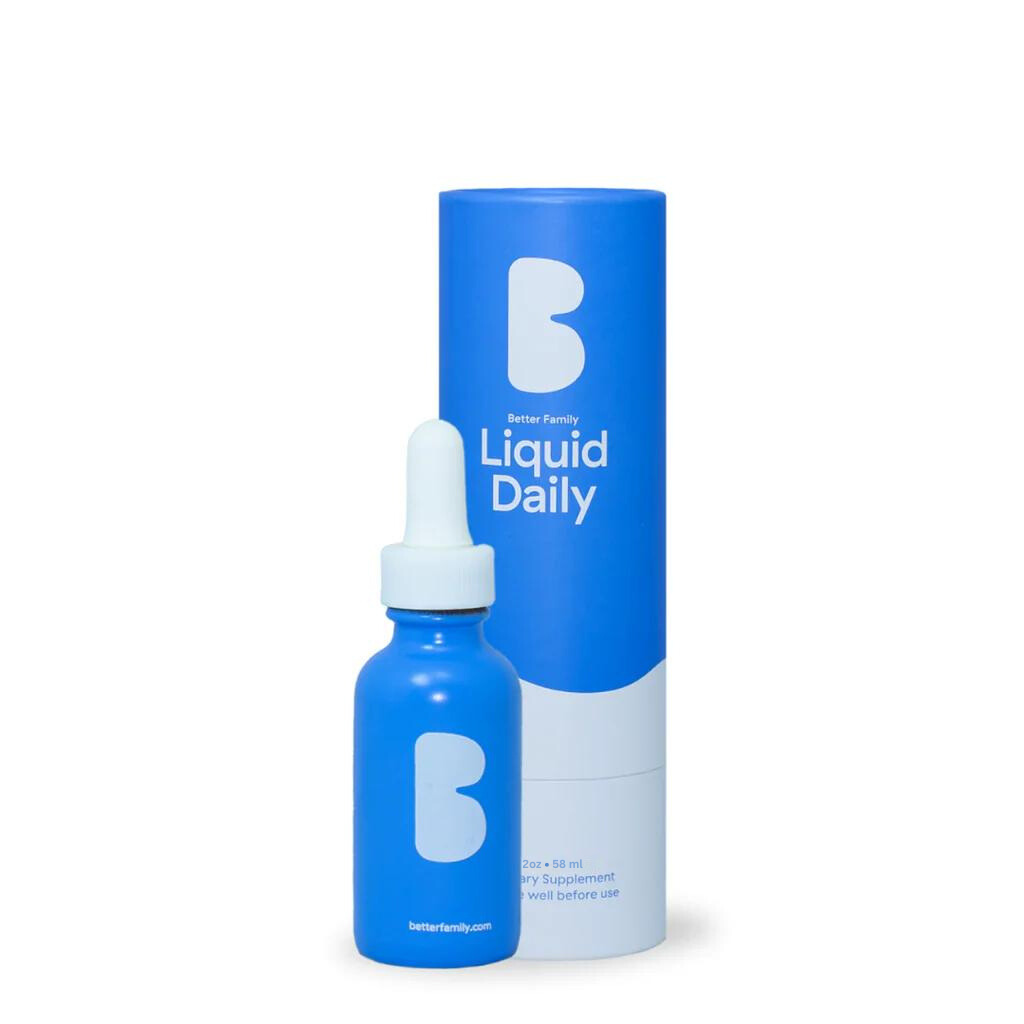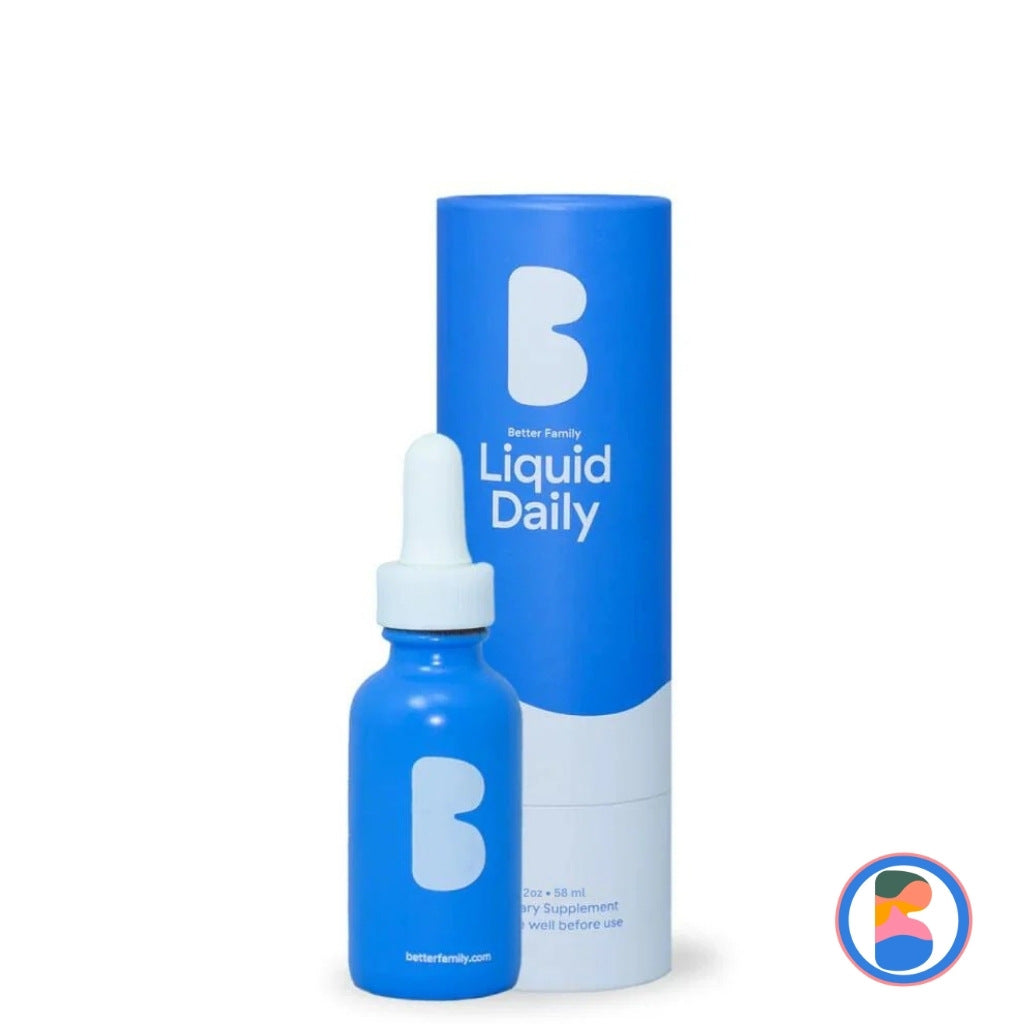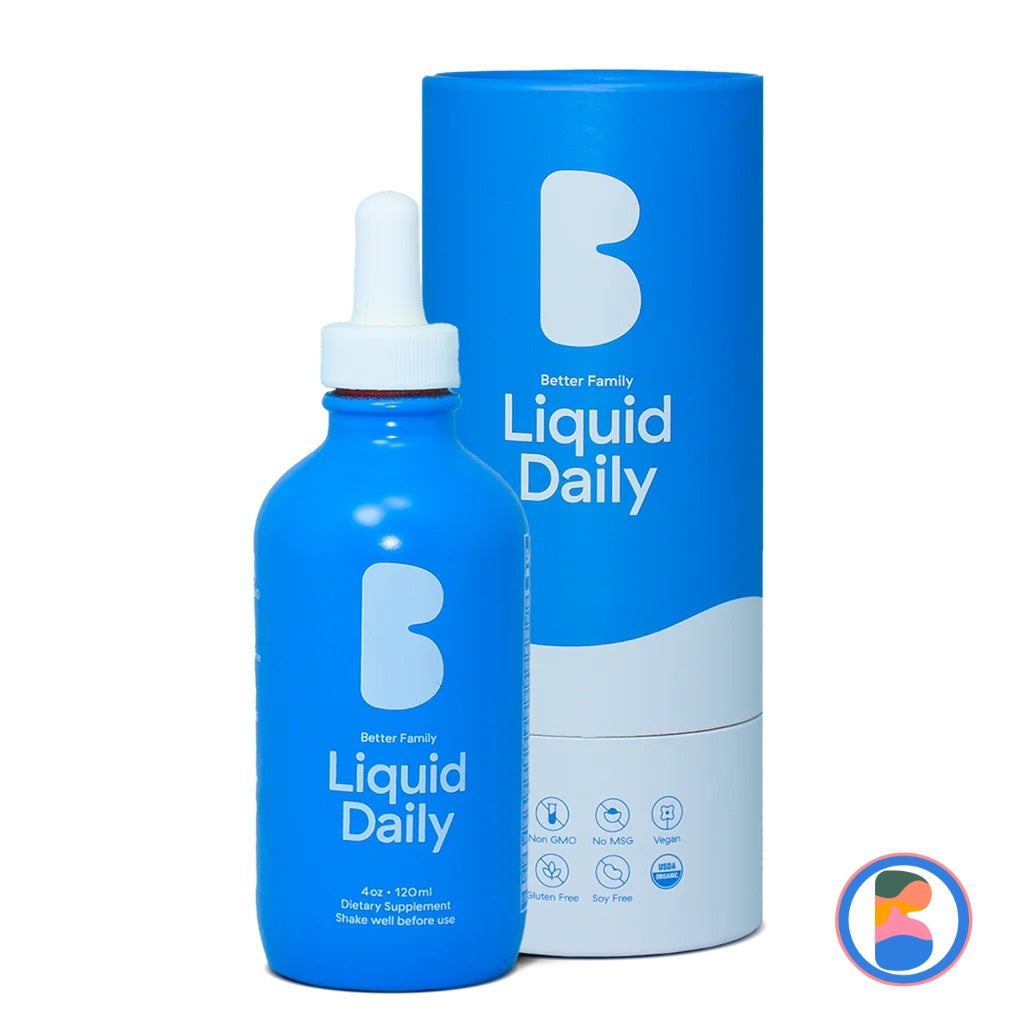Better Family Article Series
Liquid Multivitamins
The Absorption Advantage
This article series is brought to you by the team behind Liquid Daily: the better option for filling nutritional gaps in your household.
Liquid Is Better
Simplify Your Routine
You're In Control

Article Highlights
- The presence of magnesium helps support nerve and muscle function as well as energy production.
- Magnesium is ground down into fine particulates that are then added to or dissolved in a liquid substance that is safe for consumption.
- Liquid Daily, as one of the best liquid multivitamins for adults, provides a balanced combination of vital nutrients that may be lacking in a typical diet.
Liquid Magnesium Supplement
It’s practically common knowledge that the human body needs several vitamins in order to function properly and facilitate healthy and normal growth and development. What’s less well-known, however, is that there are several minerals that are necessary for human survival as well. Some of these minerals are more well-known, like calcium, potassium, iron, and zinc, but there are others as well. One of the lesser-known minerals the human body needs to survive is magnesium. An average adult human body contains several grams of magnesium in their bones, blood, and soft tissues, and the presence of magnesium helps support nerve and muscle function as well as energy production.
For clarity purposes, magnesium in liquid form does not mean the magnesium itself is liquid – magnesium, like other alkaline-earth metals, is a solid at room temperature. Rather, the magnesium is ground down into fine particulates that are then added to or dissolved in a liquid substance that is safe for consumption. This liquid can then be added to a beverage, smoothie, or breakfast bowl, or liquids can be ingested regularly or sublingually.
Taking liquid magnesium in this manner can provide a wealth of benefits, especially for people suffering from digestive issues or chronic disorders. Not only that, but magnesium is critical in supporting several other daily bodily functions. Magnesium is an essential cofactor that enables the human body to perform hundreds of chemical reactions that are necessary for energy creation, nervous system regulation, and basic cellular maintenance.
While liquid magnesium may be the best option for some individuals struggling with magnesium deficiency, there are dozens of other options and methods of administration from which to choose. Finding a product that you like that helps can take time – it’s important not to settle for something that isn’t working as well as it could. Symptoms of Magnesium Deficiency Individuals may suffer from magnesium deficiency for a variety of reasons. Most commonly, people suffer from magnesium deficiency as a result of a poor diet or lack of access to fresh, quality foodstuffs. People with type 2 diabetes or digestive issues like ulcerative colitis or Crohn’s disease may also be particularly prone to magnesium and other deficiencies. According to the Mayo Clinic, “Low magnesium levels usually don’t cause symptoms. However, chronically low levels can increase the risk of high blood pressure, heart disease, type 2 diabetes and osteoporosis,” so it’s highly important,
According to Healthline, some contributing causes to magnesium deficiency could include starvation, acute or chronic diarrhea, celiac disease, and certain medications associated with chemotherapy and proton pump inhibitors. And although symptoms may be subtle at first, magnesium deficiency is quite serious and, if left unchecked, may eventually cause muscle cramps, fatigue or malaise, mental health issues, irregular heartbeat (palpitations), or even osteoporosis. If any of these conditions apply to you or you have a reasonable suspicion that you may be susceptible to a magnesium deficiency, consult with your doctor or primary care physician about what options are available to you. Many individuals may be able to correct a deficiency just by making slight adjustments to their diet to include additional sources of magnesium-rich foods. In some cases, however, it may be necessary to seek alternative methods like dietary supplements or nutritional additives.
Try Liquid Daily
Liquid Daily is the all-in-one liquid multivitamin that contains the highest quality formats of the most important vitamins and minerals.
- 18 Essential Vitamins & Minerals
- Advanced Liquid Absorption
- Zero sugars, fillers, or artificial flavorings
- Safe & Effective for Kids & Adults!
Best Way to Get Magnesium
With so many options from which to choose, how does one know which method is best for them? Which type of magnesium is best? To boost your magnesium daily intake, you might first consider eating more foods rich in magnesium, like almonds, pumpkin seeds, dark chocolate, flaxseed, cashews, cocoa, coffee, oats, and more. If you are able to eat a well-balanced diet with several magnesium-rich foods, however, and are still suffering from magnesium deficiency, you may be struggling to absorb the essential vitamins and nutrients traditionally through your digestive tract. In addition to liquid supplements, however, there are also manufacturers that produce and offer capsules, tablets, gummies, and a variety of other products as well – finding what works best for you is at least somewhat about your personal preferences.
Because magnesium can sometimes interact with other medications (including antibiotics), it’s important to discuss any changes with your doctor, pharmacist, or primary care physician before adding a supplement product to your daily regimen. While too little magnesium has plenty of adverse effects, so too does too much magnesium, which can cause nausea, abdominal pain or cramping, and diarrhea. Because of this, it’s generally best to consume only the daily recommended amount of magnesium – or any other essential vitamin or nutrient, for that matter.
Resource
More articles from Better Family



